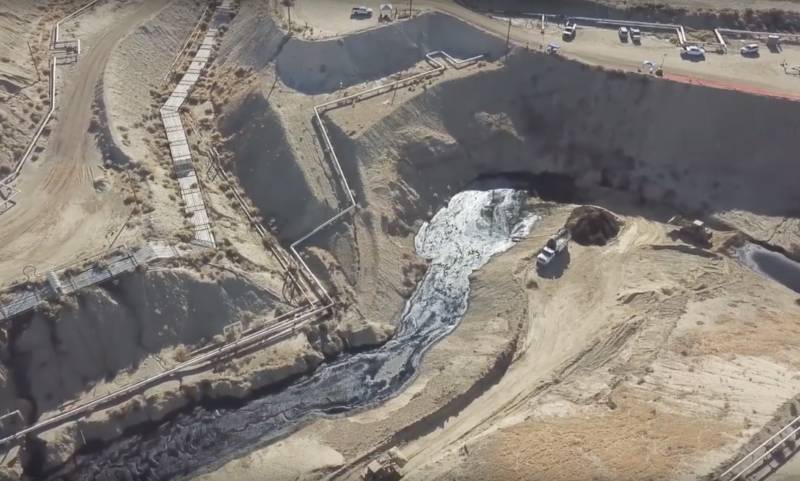New regulations that went into effect in April ban surface expressions, which have been part of the steam injection work for years.
In fact, one series of leaks, which began in 2003 and are collectively referred to by Chevron and regulators as GS-5, has led to the release of tens of millions of gallons of oil.
Over the last several months DOGGR issued notices of violation to Chevron for GS-5 and the 2019 leaks and imposed orders to reduce steaming operations near the seeps. In one case, the division slapped Chevron with a $2.7 million fine.
‘It Might Be a Really Long Pause’
But the seeps continue, with Chevron reporting two new uncontrolled flows in the last 12 days. (The new incidents are recorded in a state database here and here.)
“These surface expressions are illegal and cannot simply be the cost of doing business. Our focus is eliminating them,” Crowfoot said, describing the moratorium on high-pressure steam injection permits as “a pause.”
“It might be a really long pause,” Crowfoot said, which could lead to a ban of the practice in some areas. “There are other means of oil extraction that if they (the oil industry) choose to do, might cost them more but would be with less … risk.”
Jason Marshall, the acting head of DOGGR, said in an interview that Chevron is improving its handling of the leaks in the Cymric Oil Field.
“They’re getting a better handle on what’s going on out there,” Marshall said. “I think they had some production practices that they were just wash, rinse repeat. … (Now) we’re seeing a higher level of participation by some of the reservoir engineers rather than just production engineers — people who know more about the geology getting involved rather than just people who know how to construct wells.”
Chevron has repeatedly emphasized that its goal is to prevent the leaks and that it continues to work with regulators to address them.
The company says that recent surface expressions may be the result of its work to stop the GS-5 release.
“We are committed to managing the field and reporting events as required. Safety is our top priority and we will continue to conduct activities to comply with agency requirements, while protecting people and the environment,” Chevron said in a statement last week.
The changes announced Tuesday by DOGGR affect only new applications for high-pressure steam extraction work, not existing wells that use the technique.
Both state regulators and Chevron officials have expressed concern that halting ongoing steam work could lead to subsidence in the Cymric field. That, in turn, could damage existing wells and lead to even bigger problems.
“You could start seeing well failures,” Marshall said. “You could cause surface expressions by doing that.”
In July, Newsom fired DOGGR Director Ken Harris and named Marshall as the agency’s acting chief. The moves came after the governor learned of a dramatic increase in permits granted for fracking and allegations that some senior officials in the division had stock in the companies they regulate.
Consumer advocacy and environmental groups who exposed those issues have called on Newsom to impose a moratorium on permits for fracking.
DOGGR, which will be renamed the Geologic Energy Management Division (CalGEM) next year, is not going that far. But it has requested an independent audit by the Department of Finance of its permitting process for fracking and steam injection jobs. That audit, which is expected to take several months, would be made public, according to Crowfoot.
“Earlier this summer concerns were raised about the permitting process, particularly for fracking. What we want to do is ensure public confidence in the process and frankly strengthen the process if there are ways we can do that,” Crowfoot said.

